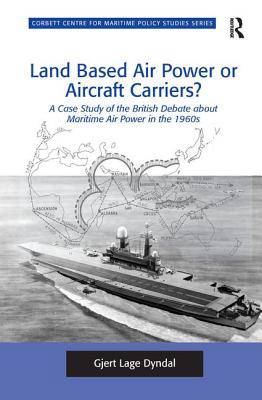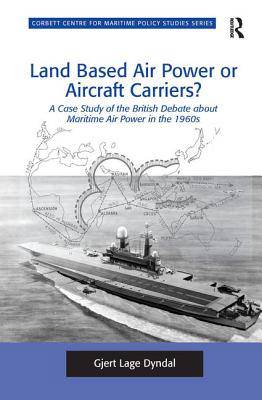
- Retrait gratuit dans votre magasin Club
- 7.000.000 titres dans notre catalogue
- Payer en toute sécurité
- Toujours un magasin près de chez vous
- Retrait gratuit dans votre magasin Club
- 7.000.0000 titres dans notre catalogue
- Payer en toute sécurité
- Toujours un magasin près de chez vous
Land Based Air Power or Aircraft Carriers?
A Case Study of the British Debate about Maritime Air Power in the 1960s
Gjert Lage Dyndal
102,45 €
+ 204 points
Format
Description
During the 1960s - in the midst of its retreat from empire - the British government had to grapple with complex political and military problems in order to find a strategic defence policy that was both credible and affordable. Addressing what was perhaps the most contentious issue within those debates, this book charts the arguments that raged between supporters of a land based air power strategy, and those who favoured aircraft carriers. Drawing upon a wealth of previously classified documents, the book reveals how the Admiralty and Air Ministry became interlocked in a bitter political struggle over which of their military strategies could best meet Britain's future foreign policy challenges. Whilst the broad story of this inter-service rivalry is well known - the Air Force's proposal for a series of island based airfields, and the Navy championing of a small number of expensive but mobile aircraft carriers - the complexity and previous lack of archival sources means that it has, until now, only ever been partially researched and understood. Former studies have largely focused on the cancellation of the CVA-01 carrier programme, and offered little depth as regards the Royal Air Force perspectives. Given that this was a two-Service rivalry, which greatly influenced many aspects of British foreign and defence policy decisions of the period, this book presents an important and balanced overview of the complex issues involved. Through this historical study of the British debate about maritime air power and strategic alternatives in the 1960s, the detailed arguments used for and against both alternatives demonstrate clear relevance to both historical and contemporary conceptual debates on carrier forces and land-based air power. Both from military strategy and inter-service relationship perspectives, contemporary Britain and many other nations with maritime forces may learn much from this historical case.
Spécifications
Parties prenantes
- Auteur(s) :
- Editeur:
Contenu
- Nombre de pages :
- 230
- Langue:
- Anglais
- Collection :
Caractéristiques
- EAN:
- 9781138269439
- Date de parution :
- 25-11-16
- Format:
- Livre broché
- Format numérique:
- Trade paperback (VS)
- Dimensions :
- 156 mm x 234 mm
- Poids :
- 331 g

Les avis
Nous publions uniquement les avis qui respectent les conditions requises. Consultez nos conditions pour les avis.






